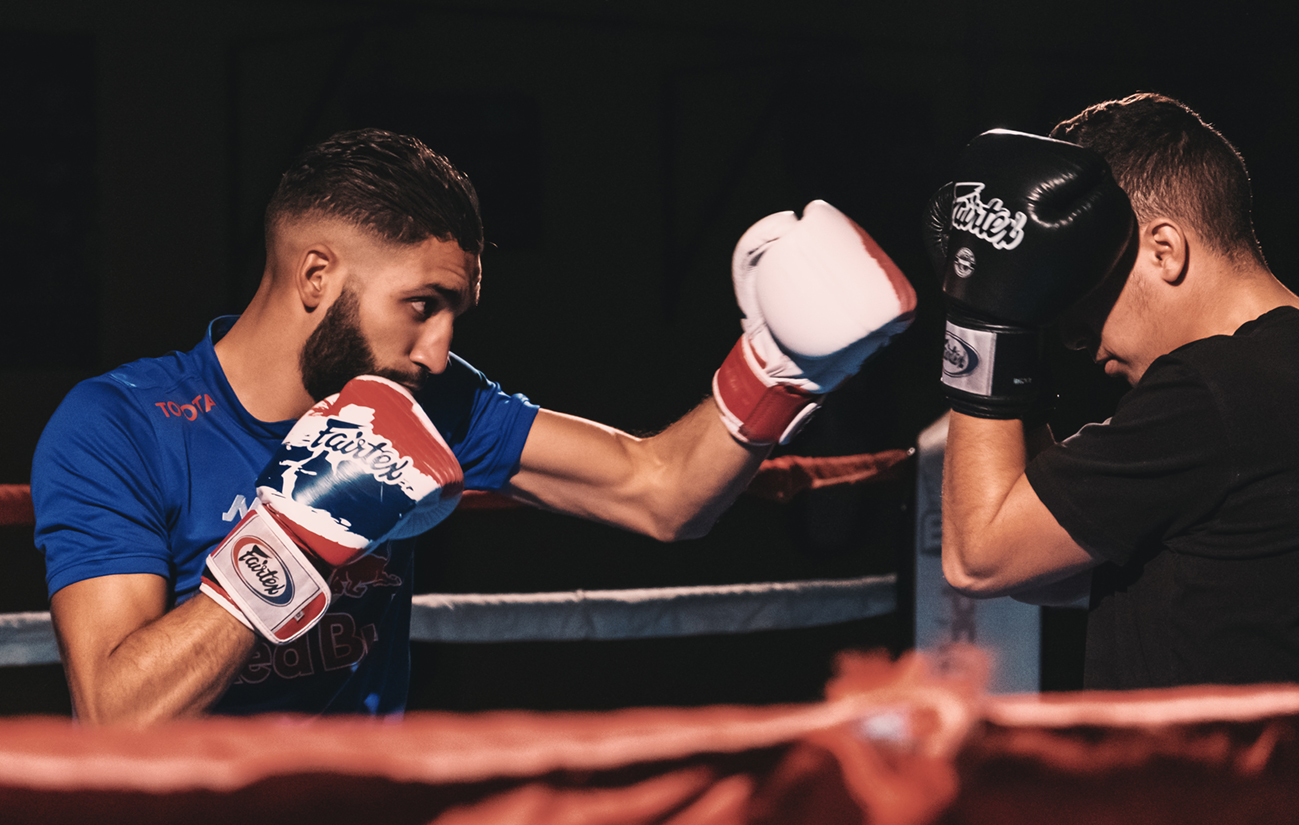Feeding the Champ; Fighting the Chump

Published
The way athletes talk to themselves matters. Inside the mind of every athlete exists a duo of conflicting characters – two internal narrators who comment on everything. One of these characters is your biggest fan – it is supportive, loving, optimistic, and resilient. This is your inner Champ. The other is more sinister – it is pessimistic, fearful, and actively tries to keep you from your potential. This is your inner Chump. They both exist in all athletes at different volumes and fight to gain control, but with practice, everyone can feed their Champ so it grows stronger and fight back against the Chump.
Feeding the Champ
When you consistently think and act like a Champ, your Champ grows strong while the Chump starves. There are two techniques to feed your Champ: Champ-talk and Champ-walk. Champ-talk is a powerful statement that can either be motivational or instructional. This type of self-talk is linked to higher confidence and better performance in athletes (Hatzigeorgiadis et al., 2009). Champ-talk is present (say it like you have it already), effective (say what you want, not what you don’t want) and concise (make it simple and easy to remember). Two examples are: “Strong and confident, I dominate this court” and “I keep my head down on every pass.” Plan a few Champ-talk statements of your own and practice saying them before or during competition.
Champ-walk is when you act like a Champ before feeling like one. Think about the body language of an athlete after they score a goal or hit a home run - their head is up, their chest is out, they’re smiling, and their arms are raised. People who exhibit confident body language increase feelings of power and send signals to their brain that trigger confident neurotransmitters (Carney et al., 2010; Niedenthal, 2007).
In other words, a confident body leads to confident thoughts, feelings, and actions. To feed your Champ like this, plan ways to deliberately act like a Champ: Walk to the plate like you already hit the home run or stand like Superman before the big game (Carney et al., 2010). When you consistently practice walking and talking like a Champ, you feed it the fuel it needs to grow stronger.
Fighting the Chump
There are times when the Chump will be so loud that you only hear the self-limiting voice in your head. When this happens, you can put mental boxing gloves on and fight it using a thought-stopping technique called Chump-blocking. When you hear the Chump telling you something unhelpful or self-limiting, use the mental imagery of knocking the thought out to mute the Chump. As you knock the Chump thought out, try replacing it using Champ-talk. For example, if the Chump says, “I’m too weak to run another sprint,” mentally knock that thought out and replace it with “I can do this all day.” Now you’ve taken control back from the Chump and are feeding the Champ. Research suggests that the combination of Chump-blocking (thought stopping) and Champ-talk (reframing and positive self-talk), is the most effective refocusing strategy (Hardy & Oliver, 2014).
Making Room for Both
Be careful – sometimes fighting the Chump is like poking a bear – it might get more aggressive. Excessively focusing on the Chump can distract you from what matters: your performance. Accordingly, sometimes the best game plan is to acknowledge that the Chump is narrating, let it be, and return your focus to the task at hand (Gardner & Moore, 2004). This doesn’t mean give in. It simply means not giving the Chump the satisfaction of your energy. The best way to do this is by naming the Chump after a TV character or a movie villain. Once you name the Chump, the next time you hear it, say hello and watch as it fades away. “Hello, Dr. Evil. I see you. Thanks for your input, but I’ve got this.” Then, just let it be. Like a fire that extinguishes without oxygen, the Chump will quiet down too.
The Choice Is Yours
Feeding the Champ will not always be easy. Sports are full of mistakes, failures, and challenges. There will be plenty of opportunities for the Chump to get loud. But it’s important to remember that long-term success in sports is not about being perfect and never struggling; it’s about the way you choose to respond when these roadblocks appear. Will you make the choice to feed your Champ and fight the Chump? The choice is yours!
References
Carney, D. R., Cuddy, A. J., & Yap, A. J. (2010). Power posing: Brief nonverbal displays affect neuroendocrine levels and risk tolerance. Psychological science, 21(10), 1363-1368.
Gardner, F. L., & Moore, Z. E. (2004). A mindfulness-acceptance-commitment-based approach to athletic performance enhancement: Theoretical considerations. Behavior therapy, 35(4), 707-723.
Hardy, J., & Oliver, E. J. (2014). Self-talk, positive thinking, and thought stopping. Sage.
Hatzigeorgiadis, A., Zourbanos, N., Mpoumpaki, S., & Theodorakis, Y. (2009). Mechanisms underlying the self-talk–performance relationship: The effects of motivational self-talk on self-confidence and anxiety. Psychology of Sport and exercise, 10(1), 186-192.
Niedenthal, P. M. (2007). Embodying emotion. Science, 316(5827), 1002-1005.
Share this article:
Published in:






